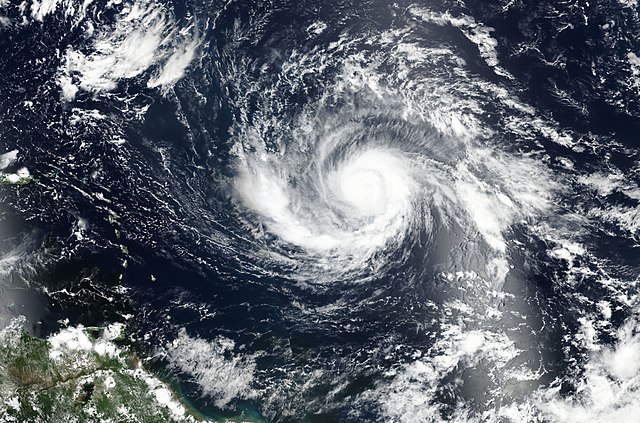Ebola epidemic
See the following -
5 Humanitarian Crises Where Open Source Projects Aimed to Bring Stability Government Software
Natural disasters, epidemics, terrorism, and uprisings—the world awaits with bated breath for the situation to turn to normalcy for those directly and indirectly affected by these crises. Here are five crises where open source technologists have helped, in some way, to bring stability in these hostile regions. An annoyed user couldn’t fix his printer as the printer’s source code wasn’t available to users. This was the reason that led to the start of the open source movement...
- Login to post comments
American Hospitals Are Vastly Unprepared for Ebola Patients, Reveals Black Book™ Survey of Emergency Physicians, Nurses and Infection Control Practitioners
A Black Book survey of nearly 1,000 hospital executives and clinical leaders probed emergency preparedness and infectious disaster resource capabilities including technology and services. The resulting responses uncovered ten common yet precarious situations that collectively restrict nearly all U.S. hospitals regardless of size or location to efficaciously diagnose, isolate and treat even a single Ebola patient while protecting its workforce and other patients. Read More »
- Login to post comments
Ebola Spreads Exponentially In Liberia, Many More Cases Soon: WHO
Liberia, the country worst hit by West Africa's Ebola epidemic, should see thousands of new cases in coming weeks as the virus spreads exponentially, the World Health Organization (WHO) said on Monday. The epidemic, the worst since the disease was discovered in 1976, has killed some 2,100 people in Guinea, Sierra Leone, Liberia and Nigeria and has also spread to Senegal...
- Login to post comments
Global Bio-Disaster Response Urgently Needed In Ebola Fight
World leaders are failing to address the worst ever Ebola epidemic, and states with biological-disaster response capacity, including civilian and military medical capability, must immediately dispatch assets and personnel to West Africa, the international medical humanitarian organization Médecins Sans Frontières (MSF) announced today in a special briefing at the United Nations organized by the office of the UN Secretary General and the World Health Organisation (WHO). Read More »
HealthMap Co-Founder And Prominent Epidemiologist Dr. John Brownstein To Deliver Keynote At 2014 mHealth Summit Focused On Ebola Outbreak, Epidemics And Public Health Surveillance
The mHealth Summit today announced that John Brownstein, PhD...Co-Founder of HealthMap, will deliver a keynote address at the 6th annual Summit on December 10...HealthMap is a global leader in using online informal sources for disease outbreak monitoring and real-time surveillance of emerging public health threats...The HealthMap software spotted the West African Ebola epidemic nine days before the World Health Organization (WHO) announced it, triggering a global response. Read More »
- Login to post comments
How Open Source Helped Beat Ebola
 More than 10,000 dead, hundreds of thousands affected, and a world paralyzed with fear at the prospect of contagion. It is hard to fully grasp the impact of the 2014-2015 Ebola outbreak in West Africa, and the valor of those who put their own lives on the line to save the lives of others. But among the countless stories of human tragedy and heroism, it's now known what a vital role open-source software played in supporting doctors during critical times...
More than 10,000 dead, hundreds of thousands affected, and a world paralyzed with fear at the prospect of contagion. It is hard to fully grasp the impact of the 2014-2015 Ebola outbreak in West Africa, and the valor of those who put their own lives on the line to save the lives of others. But among the countless stories of human tragedy and heroism, it's now known what a vital role open-source software played in supporting doctors during critical times...
- Login to post comments
How Open Source Mobile Health Technology Aided Ebola Response
 When the Ebola epidemic spread across West Africa in early 2014, organizations around the world sent thousands of health workers to combat the outbreak alongside local medical personnel and volunteers. Over the past two years, many of these teams have seen the benefits of using mobile health technology for disaster response. Some of the most important tasks in responding to a healthcare disaster are collecting, analyzing, sharing and acting upon data gleaned from patients. That was one job of Partners in Health (PIH), a nonprofit based in Boston, which worked in the affected countries to train medical staff, provide patient care, and survey patients and their families.
When the Ebola epidemic spread across West Africa in early 2014, organizations around the world sent thousands of health workers to combat the outbreak alongside local medical personnel and volunteers. Over the past two years, many of these teams have seen the benefits of using mobile health technology for disaster response. Some of the most important tasks in responding to a healthcare disaster are collecting, analyzing, sharing and acting upon data gleaned from patients. That was one job of Partners in Health (PIH), a nonprofit based in Boston, which worked in the affected countries to train medical staff, provide patient care, and survey patients and their families.
- Login to post comments
How OpenMRS is Used to Fight Malaria in Endemic Areas
 Children receiving care at a health clinic using OpenMRS in rural Uganda. Statistics from the Ministry of Health show that malaria is still the leading cause of death in Uganda, accounting for over 27% of deaths. OpenMRS is an electronic medical record platform designed to be used in low-resource environments where malaria and many other deadly diseases are endemic such as Uganda, where malaria is the primary cause of death in children. OpenMRS is currently used in over 1,800 medical clinics in 64 countries, providing the health information technology infrastructure that is foundational to over 6.3 million patients...
Children receiving care at a health clinic using OpenMRS in rural Uganda. Statistics from the Ministry of Health show that malaria is still the leading cause of death in Uganda, accounting for over 27% of deaths. OpenMRS is an electronic medical record platform designed to be used in low-resource environments where malaria and many other deadly diseases are endemic such as Uganda, where malaria is the primary cause of death in children. OpenMRS is currently used in over 1,800 medical clinics in 64 countries, providing the health information technology infrastructure that is foundational to over 6.3 million patients...
- Login to post comments
How the Trump Budget Undercuts Security Risks Posed by Pandemics
 President Trump proposed a US$54 billion military budget increase to solidify the security of our nation. However, the government also recognizes pandemic threats as an issue of national security – one that knows no borders. In the last four years, we have faced the Ebola epidemic – contained after significant loss of life – and Zika, which is still not contained. Collectively, we will feel these effects for a generation, while children born with Zika-related defects and their families will feel the effects every day of their lives...
President Trump proposed a US$54 billion military budget increase to solidify the security of our nation. However, the government also recognizes pandemic threats as an issue of national security – one that knows no borders. In the last four years, we have faced the Ebola epidemic – contained after significant loss of life – and Zika, which is still not contained. Collectively, we will feel these effects for a generation, while children born with Zika-related defects and their families will feel the effects every day of their lives...
- Login to post comments
Hurricanes Harvey and Irma Draw the Line - Time for the US to Embrace Open Source Emergency and Disaster Response
 For nearly 20 years now the global open source community and applications have been a keystone to disaster relief efforts around the world. The enormous number of disaster relief applications and knowledge that has been developed through all these years, should, and needs to be leveraged in the current crisis. For that reason, Open Health News is starting a series of articles to highlight some of the most important solutions. A substantial portion the open source applications for emergency and disaster response that exist are actually already on the news website in the form of articles and resource pages.
For nearly 20 years now the global open source community and applications have been a keystone to disaster relief efforts around the world. The enormous number of disaster relief applications and knowledge that has been developed through all these years, should, and needs to be leveraged in the current crisis. For that reason, Open Health News is starting a series of articles to highlight some of the most important solutions. A substantial portion the open source applications for emergency and disaster response that exist are actually already on the news website in the form of articles and resource pages.
- The Future Is Open
- Login to post comments
Mobile Health Apps Have Role In Ebola Crisis
Mobile health apps could play a bigger role than they have to date in speeding the response to a global health crisis...
- Login to post comments
Mobile Health Apps Have Role In Ebola Crisis
Mobile health apps could play a bigger role than they have to date in speeding the response to a global health crisis...
- Login to post comments
Open Health Round-Up For 2014: Notable Articles, Reports, And Events
Even the hidebound field of health care can undergo a lot of change over the course of one year. Key health IT trends that I saw throughout 2014 are summarized in another article. Here I'll list some of the most notable articles and reports related to open source, standards, and transparency in health. Read More »
Open Source App Takes on Ebola and Mental Health in Liberia
 Angie Nyakoon and Amanda Gbarmo Ndorbor are two outspoken and energetic women who oversee the Mental Health Unit at the Ministry of Health and Social Welfare (MOHSW) in Liberia. Together, they're applying a new open source app called mHero (that was first used to help them deal with the Ebola crisis) to the mental health issues that have arisen in the aftermath of the epidemic due to displacement and abandonment...mHero provides a trusted channel that facilitates two-way communication using SMS and interactive voice response for sending and receiving critical information to and from frontline health workers, in real time...
Angie Nyakoon and Amanda Gbarmo Ndorbor are two outspoken and energetic women who oversee the Mental Health Unit at the Ministry of Health and Social Welfare (MOHSW) in Liberia. Together, they're applying a new open source app called mHero (that was first used to help them deal with the Ebola crisis) to the mental health issues that have arisen in the aftermath of the epidemic due to displacement and abandonment...mHero provides a trusted channel that facilitates two-way communication using SMS and interactive voice response for sending and receiving critical information to and from frontline health workers, in real time...
- Login to post comments
Open source EHR platform tailored to treat Ebola patients
 An open-source electronic health record system developed to treat Ebola patients during the recent epidemic in West Africa is being touted as a potential solution for clinical data collection in highly infectious environments and resource-constrained healthcare settings. Implemented two years ago at Save the Children International’s Kerry Town Ebola treatment center in Sierra Leone, the EHR leverages a Java-based web application called OpenMRS that enables the design of a customized medical records system with no programming.
An open-source electronic health record system developed to treat Ebola patients during the recent epidemic in West Africa is being touted as a potential solution for clinical data collection in highly infectious environments and resource-constrained healthcare settings. Implemented two years ago at Save the Children International’s Kerry Town Ebola treatment center in Sierra Leone, the EHR leverages a Java-based web application called OpenMRS that enables the design of a customized medical records system with no programming.
- Login to post comments